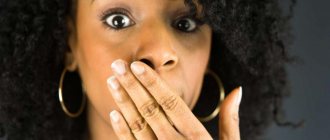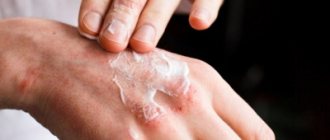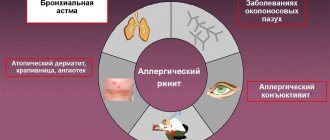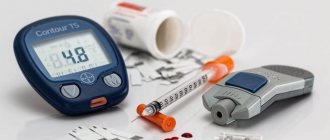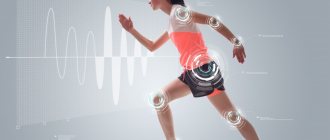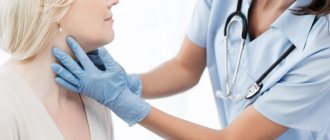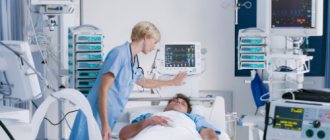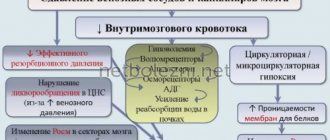Definition
Hiccups are periodically occurring involuntary myoclonic contractions of the diaphragm with possible involvement of the intercostal muscles (usually unilateral). The contraction results in a sudden inhalation followed by closure of the glottis, which is accompanied by a characteristic sound.
Duration
Short-term – up to 48 hours; long-term – from 48 hours to 1 month; intractable – more than 1 month.
Prevalence
Prolonged, difficult-to-control hiccups are quite common in patients with advanced cancer.
Anatomy and pathophysiology
The physiological mechanism of hiccups remains unclear. The hiccup reflex arc includes:
- afferent pathways: phrenic and vagus nerve pathways, sympathetic nervous system;
- diffuse “hiccup center”: midbrain, brain stem, proximal cervical spinal cord (C3 – C5);
- central neurotransmitters: dopaminergic and gamma-aminobutyric acid (GABA);
- efferent pathways: diaphragmatic, vagus and intercostal nerve pathways, conducting signals that cause contraction of the diaphragm.
Common causes of hiccups
The content of the article
As a rule, hiccups appear unexpectedly and last for several minutes.
Most often it is a consequence of poor eating habits. It occurs when we eat in a hurry, greedily swallowing large, unchewed pieces of food.
In such a situation, a lot of air is swallowed and the quickly filled stomach stretches and begins to put pressure on the diaphragm, and this is the most important respiratory muscle that separates the lungs from the abdominal cavity.
Eating too cold, hot or spicy foods also contributes to the occurrence of hiccups. It is worth mentioning large volumes of carbonated drinks. When they are consumed, a significant amount of carbon dioxide accumulates in the stomach.
Often, hiccups appear after drinking alcohol. It irritates the nerve endings of the diaphragm, relaxes the muscles of the throat and stomach. Carbonated drinks can also cause a similar effect, especially when drunk quickly. If after the above types of drinking or eating on the go, frequent hiccups begin, it is worth changing bad habits.
General information
Hiccups are a respiratory dysfunction caused by forced, myoclonic contraction of the intercostal muscles and diaphragm.
The contraction of these muscles occurs synchronously. Most often, contractions occur only on the left side of the diaphragm, but the entire diaphragm can be involved. Almost simultaneously with the contractions, a sudden short and intense inhalation occurs with the glottis closed, which creates the characteristic “hic” sound. Wikipedia indicates that these disorders are an involuntary physiological reaction and occur due to irritation of the phrenic nerve. This condition occurs more often in men. The most common acute hiccups are episodic, do not last long (a few seconds or minutes) and their attacks are harmless. Most often this is due to excessive filling of the stomach, which is why hiccups occur after eating or during eating. It quickly stops with any actions on the part of the person or goes away on its own.
In cases where hiccups occur frequently and in prolonged episodes, they are considered pathological. Persistent (>48 hours) causes fatigue, irritability, discomfort, insomnia and depression . If you have prolonged hiccups (more than two days) or even longer hiccups (more than 1 month), you should consult a doctor. Long-term symptoms may indicate serious illnesses and therefore require serious attention. Persistent and intractable hiccups are rare and difficult to treat.
Some causes of this pathology can be identified and eliminated with treatment. Thus, respiratory disorders due to ischemic stroke disappear with thrombolytic therapy, and hiccups due to meningitis disappear with antibacterial treatment. In this article we will look at how you can stop hiccups in adults and what methods will help stop them. Options for drug treatment that can relieve long-term hiccups will be considered, as well as surgical treatment as an option to permanently remove it if drug treatment is ineffective.
Specific causes of hiccups
When we eat too much food, we feel sleepy and begin to lie down on the bed. In this case, you should not sleep on your right side. Because then the diaphragm additionally shifts, the airways work worse, and this contributes to hiccups. After a hearty lunch, it is useful to take a walk rather than doze off on the couch.
The cause of this embarrassing illness is chronic stress. When we are nervous, the heart beats faster, breathing becomes irregular, and the diaphragm does not work rhythmically. In such a situation, using infusions of sedative herbs, for example, lemon balm, valerian, and St. John's wort, can help. Sometimes a prescription anti-anxiety or anti-depressant medication may be needed.
Hiccups that recur several times a month or a week and are not relieved with home remedies may be a signal of illness.
Most often, hiccups are caused by problems with the digestive system.
Hiccups can be a symptom of inflammation of the stomach lining or gastroesophageal reflux, when stomach acids irritate not only the throat and esophagus, but also the nerves of the diaphragm.
Other diseases that hiccups may indicate are stomach ulcers or even abdominal cancer. Sometimes a symptom may indicate lesions of the lungs or mediastinum. If the doctor suspects a serious cause, he will refer the applicant for appropriate research.
Treatment
Non-drug
It is recommended for use before the use of medications; it is prescribed purely individually. The most common types of non-drug therapy are the following.
Changing the diet : reduce the single volume of food taken with an increase in the frequency of intake.
Use of mint infusion : helps relax the sphincters, should be freshly prepared, not used together with prokinetics that increase the tone of the muscles of the stomach and intestines and the lower esophageal sphincter.
Nasopharyngeal stimulation techniques:
- rinse your nose with cold water;
- suck cold water through a straw, swallow or suck small pieces of ice;
- swallow 1 teaspoon of dry granulated sugar;
- quickly drink two glasses of water;
- gargle with water;
- suck on lemon slices;
- swallow pieces of dry bread;
- inhale saline solution through a nebulizer;
- stretch your neck;
- massage the soft palate for 1 minute;
- stretch out your tongue with your fingers;
- press hard on your tongue.
Preventing irritation of the diaphragm : bend forward, pressing your knees to your stomach.
Stimulation of the C5 dermatome (interrupts stimulation of the hiccup neural arch):
- patting or scratching the back of the neck;
- placing a cold, safe metal object behind the collar (for example, a key);
- cold compress on the face.
Breathing manipulations:
- holding your breath;
- causing sneezing or coughing;
- frequent deep breathing (hyperventilation);
- breathing into a paper bag (hypoventilation);
- “Valsalva maneuver” (forced exhalation with the nose and mouth closed). Should not be carried out if you have a cold, because... the infection can penetrate into the middle ear cavity, and in patients with heart disease (increases blood pressure). Use caution in patients with pulmonary emphysema, primary/secondary tumor lesions of the lungs, so as not to provoke pulmonary hemorrhage.
Medication
Treatment for hiccups is determined by the cause of its occurrence. In palliative care, hiccups are most often caused by several causes; as a rule, an integrated symptomatic approach is used for treatment (see Diagram 1, Appendix 1).
Table 1 shows the medications and dosages used in the treatment of hiccups. The route of administration of drugs is oral (inside), unless otherwise indicated.
Tests and diagnostics
For diagnosis, it is important to collect an anamnesis, as a result of which illnesses suffered, the presence of head injuries, surgical interventions on the brain and spinal cord, and manipulations are revealed. Triggers that provoke hiccups, medication use, and the patient’s attitude toward smoking and alcohol are identified.
- a full examination and examination by specialists (otolaryngologist and neurologist);
- Clinical and biochemical blood test (electrolytes, C reactive protein, urea, creatinine, amylase, liver tests);
- MRI of the brain;
- CT scan of the chest;
- electroencephalography;
- esophageal manometry;
- esophagogastroduodenoscopy;
- bronchoscopy;
- spirography;
- Lumbar puncture.
Symptoms
Whatever the origin of hiccups, involuntary spasms of the diaphragm are accompanied by indecent loud sounds that attract the attention of others. However, their frequency of occurrence and duration vary. Persistent hiccups, lasting more than two days, occur with pathologies of the chest and abdominal organs. In this case, the symptoms of the underlying disease must be identified: cough, chest pain or bloating, belching, heartburn, bitterness in the mouth, pain in the epigastric region or near the navel. Intractable, persistent hiccups continue for months and most often have a central origin, that is, associated with damage to the brain or spinal cord. At the same time, symptoms characteristic of a particular disease will also be identified ( headache , dizziness , convulsions , lack of coordination, deterioration of vision and hearing, impaired movement in the limbs). The diagnosis is confirmed by MRI or CT scan of the brain.
Survey
A diagnostic search aimed at clarifying the causes of hiccups is carried out when it is combined with other symptoms, occurs frequently, and attacks last more than 60 minutes. The examination plan is drawn up taking into account the medical history and accompanying symptoms. Most often, primary diagnosis is carried out by a gastroenterologist, who, according to indications, involves other specialists in examining the patient. Depending on the suspected cause of the symptom, the following are used for express diagnostic purposes:
- Endoscopic studies
. Gastroscopy is the most informative method that allows you to quickly objectify pathological changes in the esophagus and stomach. If space-occupying formations, erosions and ulcers are detected during endoscopy, a biopsy is performed for histological analysis of the material. - X-ray methods
. X-ray of the abdominal cavity, X-ray examination of the chest are carried out to detect gastrointestinal pathology, relaxation of the diaphragm, pleurisy, mediastinal tumors and other possible causes of hiccups. Next, RCP and other X-ray contrast techniques are used. - Ultrasound research .
Sonography of the abdominal cavity is performed to assess the echostructure of the main parenchymal organs and identify free fluid; according to indications, it is supplemented by ultrasound of the gallbladder and liver. If pleurisy or mediastinal tumors are suspected, ultrasound of the pleural cavity and mediastinum is indicated. - Tomography
. If radiography and sonography are insufficiently informative, CT, MSCT and MRI of the abdominal or thoracic cavities and individual organs are performed. MRI of the head and spine are highly accurate in diagnosing cerebral and spinal pathologies. In difficult cases, an MRI of the whole body is performed. - Electrofunctional Research
. After excluding abdominal and thoracic causes of hiccups, electroencephalography is recommended. The method identifies foci of pathological activity in the brain. To clarify the level of damage to the nervous system, electroneurography and electromyography are also performed. - General blood analysis
. With high leukocytosis, a shift of the leukocyte formula to the left, and an increased ESR, further diagnostic search is aimed at identifying inflammatory and neoplastic processes. The analysis is often supplemented with the study of enzymes (ALT, AST) and determination of the level of C-reactive protein.
Upon receipt of preliminary information about a possible disease that provoked hiccups, further examination is carried out according to the appropriate protocol and may include a wide range of laboratory and instrumental methods. Differential diagnosis is carried out between various pathological processes in which hiccups may develop.
If you have hiccups, it is recommended to drink water in small sips.
Tips on how to avoid hiccups after drinking alcohol
It is recommended to monitor your breathing so that it is even, try not to mix carbonated and alcohol-containing drinks. You should not take the latter on an empty stomach. It’s better to have a good snack, but without haste. Controlling the amount you drink is the key to good health in the morning and eliminating the risk of intoxication.
For a “civilized” feast, following these recommendations is realistic. However, a dependent person in the company of his own kind is unlikely to think about such “little things”, and also why hiccups after alcohol are considered not a very good thing. Relatives should take care of his health and well-being.
List of sources
- Ivashkin V.T., Trukhmanov A.S. Evolution of ideas about the role of disorders of the motor function of the esophagus in the pathogenesis of gastroesophageal reflux disease. Russian Journal of Gastroenterology, Hepatology, Coloproctology 2010; 20(2):13-9
- Cherkasov M.A., Mokhanna M.I., Ibragimov Z.A., Rabadanov R.Sh., Kovalenko A.N., Aliev A.G. Persistent hiccups after epidural anesthesia for revision hip replacement // International Journal of Applied and Fundamental Research. – 2021. – No. 9. – P. 86-90.
- Shtulman D.R., Levin O.S. Neurology: A Practitioner's Handbook. 6th ed. 2008, 1024 p.
Diet
There is no special diet for central hiccups, since it is impossible to influence this process with therapeutic nutrition. For food-related hiccups, it is important to monitor the amount of food you eat and the speed at which you eat it, as both of these factors can trigger hiccups. For diseases of the gastrointestinal tract, therapeutic nutrition should be used in accordance with the underlying disease. The general principles are fractional meals, exclusion of fatty, spicy, fried foods, foods that cause bloating (legumes, baked goods, kvass, an abundance of simple carbohydrates).
Classification
By duration:
- Episodic or short-term (duration up to 10 minutes).
- Persistent, persistent (duration more than 48 hours).
- Intractable, persistent, intractable (duration more than 1-2 months).
According to the location of the outbreak:
- Central. It occurs when the brain and spinal cord are damaged - trauma, encephalitis , tumors , vascular disorders.
- Peripheral. Caused by processes that involve the phrenic nerve ( hiatal hernia , pancreatic tumors compressing the nerve, respiratory diseases).
- Toxic. Occurs due to toxic effects ( uremia , the effects of medications, alcohol), and metabolic disorders.
Proven methods for getting rid of hiccups after drinking alcohol
Often, neither the drinker himself nor his relatives take this phenomenon seriously, but this is a fundamentally erroneous opinion , because it is one of the main signs of severe poisoning of the body. Therefore, you need to know methods on how to get rid of hiccups after drinking alcohol.
The first action that needs to be taken is to induce vomiting to clear the stomach of alcohol. This will prevent an increase in the concentration of ethanol in the blood and eliminate discomfort by switching the nervous system to the gag reflex.
For hiccups caused by drinking alcohol, it is recommended to take foods with a strong taste: mustard, horseradish, citrus fruits, garlic, onions, pickled apples and cabbage. The latter contain succinic acid, which promotes the oxidation of toxic breakdown products of ethanol and their removal from the body, sobering up.
You can eliminate discomfort through breathing exercises. The simplest exercises are pulling up with your arms and bending down while holding your breath. You need to do 10-15 repetitions. Gymnastics will not only relieve discomfort, but also improve the functioning of the cardiovascular system and, accordingly, overall well-being. It is better to do gymnastics in the fresh air or in a well-ventilated area . You can improve your well-being by walking, which promotes:
- improving blood circulation;
- eliminating oxygen starvation of cells;
- normalization of metabolic processes;
- improving the functioning of the bronchopulmonary system;
- sobering up;
- normalization of sleep and wakefulness.
In the question “how to get rid of hiccups from alcohol,” the use of unconventional, extraordinary methods can help, such as distracting attention through conversation, an interesting movie, a computer game, or communication on social networks. You can eliminate discomfort and improve your overall well-being by drinking good quality water or green tea without sugar. However, all of the above makes sense if you stop drinking alcohol immediately after discomfort occurs.
The main “taboo” in the fight against post-alcoholic hiccups
Such a popular technique among people far from medicine should not be used a scare For a drunk person, it can result in serious stress. The thing is that under the influence of alcohol , the work of internal organs and systems already malfunctions; the body functions in “emergency survival” mode, so it can react to fear in a very unexpected way.
Not only useless, but also a dangerous way to combat hiccups is to drink soda . There is an opinion that soda relieves diaphragm spasm. In practice, the situation is different - when carbon dioxide enters the stomach, it only stimulates additional muscle contractions, and the hiccups get worse. The same effect occurs when a person drinks a large amount of food - this not only additionally burdens the body, but can also provoke spasms of the diaphragm.
And the main idea that should be abandoned is the fight against a hangover and the accompanying hiccups with the help of alcohol (for example, beer). This can only prolong the binge and worsen your own condition.
Symptomatic therapy
Episodes of physiological hiccups go away on their own within 2-10 minutes. Sometimes, to relieve them faster, it is enough to be distracted, take a deep breath 2-3 times, hold your breath for a while, or drink a couple of sips of water. If the attack continues despite distracting and reflexive methods being taken, taking into account the patient’s condition, it is recommended to contact a local or family doctor, who will prescribe further examination, or call an ambulance if the patient’s condition rapidly worsens.
Before hospitalization and examination to stop hiccups, a medical professional can stimulate some reflexogenic zones in the face and exit points of the phrenic nerve, insert a catheter intranasally to a depth of 12 cm. Sometimes an intravenous infusion of calcium preparations has a relief effect. With a probable central and especially psychogenic genesis of hiccups, sedative herbal preparations, tranquilizers and antipsychotic drugs are used.
Attention (this is important)!
Intractable hiccups that last more than an hour can be a sign of intoxication or severe brain pathology. In such cases, delay in hospitalization significantly worsens the prognosis of the underlying disease, leading to the need for more complex drug regimens and emergency invasive interventions. An urgent call to an ambulance is necessary for hiccups combined with vomiting, disturbances in sensitivity, motor activity and consciousness. Repeated bouts of hiccups are also a reason for a thorough examination.
